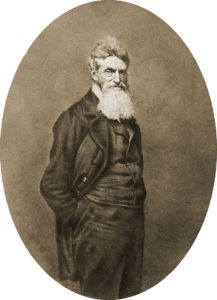IDF – Question 9
Today the Interaction Design Foundation asked:
“Using the information in this lesson item, what can you do to increase each of the following? If you don’t want to increase something, note that as well.
Trust
Familiarity
Loyalty
Presence”
AMW & BW took a quick stab at that slippery eel of a question:
Trust: Make sure the site is as professional, safe, enjoyable and usable as possible
Specifics: No spelling or grammar errors or bugs in delivery;
easy navigation to high quality work [ex: right now the page with an overview of the writings is a mess that needs to be organized so that the reader can easily find the type of writings they are looking for, with the better writings at the top of the list and the others at the bottom];
money-back offers prominent and honored
use third party money-takers like paypal and stripe that people already trust;
all ebooks should be readable and beautiful [when a writer asks a reader to spend their time and energy on their book, the writer is asking for trust, and so we want to err on the side of removing more content rather than the side of getting in every clever little point (ouch! how do you do that?!?)];
if we are ever going to actually have a readership, we’ll need a system for monitoring emails and the Buy the Books page should be shorter
Familiarity: We can release the books on other forums (like Amazon and B&N) and submit works for reviews. [Right now the site is basically a secret, which is just as well, since isn’t ready for visitors.] We’ll have to get the mailing list up and running so we can send out updates about products and maybe weekly (short!) writing selections.
Loyalty:
We need to make sure these elements are high quality: 1) tangibles, 2) the combination of responsiveness, reliability, and assurance, and 3) empathy (Gefen, 2002a).
Most of these have been discussed in the Trust and Familiarity sections. What does Grefen, 2002a mean with “empathy” here? The site anticipates users needs? “Empathy” for the user or for all sentient beings? Let’s have a lesson on this use of “empathy” please.
Presence:
Again the lesson noted that there’s a trade-off with Presence: rich media creates the illusion that the user and the product/company/site really are pals hanging out (named here: “presence”) and that increases user’s motivation to engage with the site’s message; but the rich media (and probably most fundamentally their veg-out in this pretend hang-out, a pleasant escape that’s painfully undone by awareness and critical thinking) decreases their ability to process the message.
That’s no trade-off for decent advertisers! We want to raise, not lower awareness. We don’t want to lull people into pretend romances with us while sticking our grubby products down their drowsy mouths. We want to share aware joy–the only kind that’s worth pursuing.
This by way of saying, let’s not put too much rich media into the main pages of this website. If we want to post a skit on it’s own page like we posts poems on their own page: that’s fine. That’s a skit and understood as one. And, like a poem, it is a way to build presence by being your whole self in front of your audience. Right? It isn’t always immoral to create rich media experiences, just when you’re using them to try and fool people into pretending you’re their friend and you’re hanging out being real cool together so cool and so’s this cat tote that we’re selling, so cool, so very cool.
Well, there’s degrees of degradation in all human endeavors. We’ll try to push towards less bullshit with the scheme sketched above. We can also create rich media contents that unmask themselves, which will help users increase their general savvyness.
AMW/BW


